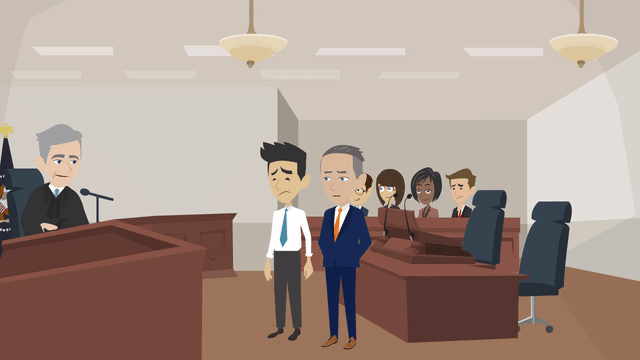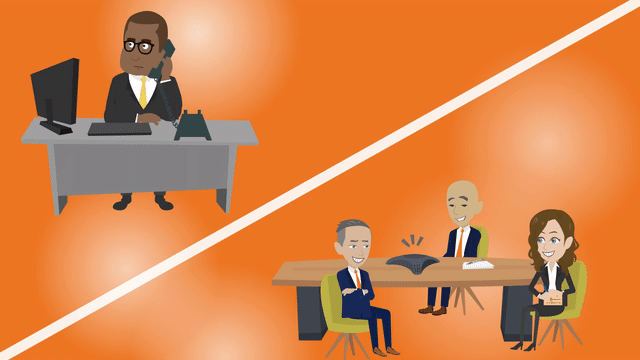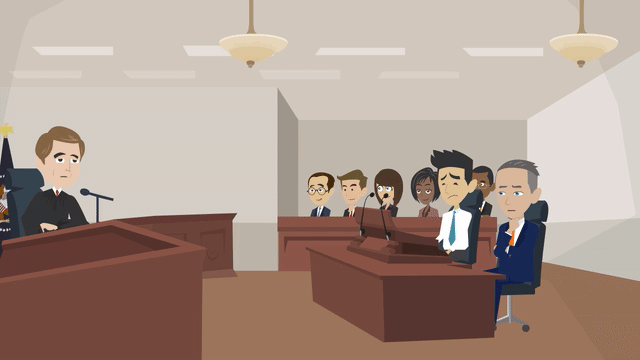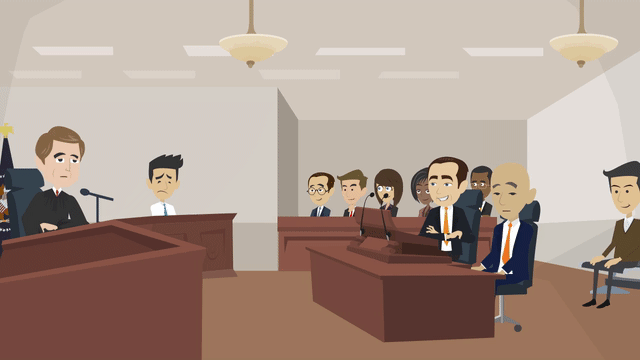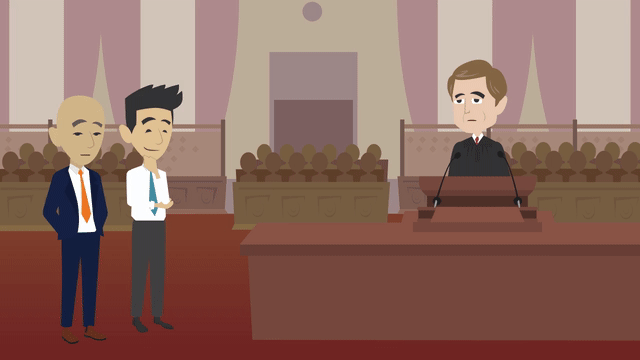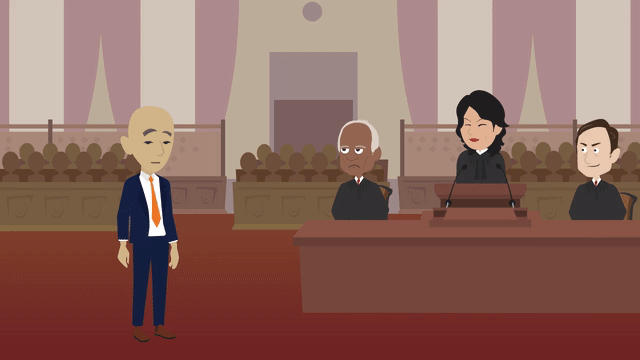Larceny Defense Lawyers & Attorneys
Larceny is commonly referred to as stealing. A Petit Larceny or a Grand Larceny occurs when a person wrongfully takes, obtains, or withholds property from the owner, with the intent to deprive another of the property or to appropriate the property to himself/herself or another person. Whether a larceny charge qualifies as a Petit Larceny or a Grand Larceny depends on the nature of the allegations and value of the property stolen. The type of larceny you are charged with will determine the punishment you will face. If you are charged with a Petit Larceny or a Grand Larceny crime, you should contact a criminal defense lawyer who handles larceny cases.
Frequently Asked Questions About Larceny
Our criminal defense lawyers provide answers to some important questions below.
Petit Larceny is a crime – a class A misdemeanor and is a charge that is filed if you steal something with a value of less than $1000. A conviction of Petit Larceny can result in up to 1 year in local/county jail, up to 3 years’ probation, and a maximum $1,000 fine. The court can also require a person convicted of a larceny offense to pay restitution which is the repayment of the value of the stolen item if it is not returned. Finally, the court may issue an order of protection preventing any contact with the victim of the crime.
Grand Larceny is a felony and is charged if you are accused of stealing something with a value greater than $1000. A Grand Larceny conviction, depending on the value of what was stolen can result in punishments as detailed below.
Grand Larceny in the fourth degree is a class E felony pursuant to New York Penal Law section 155.30. This is a charge that results if you steal any car worth more than $100, a credit or debit card, or anything worth more than $1,000. You face up to 4 years in a New York state prison facility or up to 5 years of probation as well as fines, restitution and an order of protection.
Grand Larceny in the third degree is a class D felony pursuant to New York Penal Law section 155.35. This is a charge that results if you steal money from an ATM or anything worth more than $3,000. You face up to 7 years in a New York state prison facility or up to 5 years of probation as well as fines, restitution and an order of protection.
Grand Larceny in the second degree is a class C felony pursuant to New York Penal Law section 155.40. This is a charge that results if you steal anything worth more than $50,000. You face up to 15 years in a New York state prison facility and up to 5 years of probation as well as fines, restitution and an order of protection.
Grand Larceny in the first degree is a class B felony pursuant to New York Penal Law section 155.42. This is a charge that results if you steal anything worth more than $1,000,000. You face up to 25 years in a New York state prison facility. A prison sentence is mandatory if you are convicted of this offense, and probation is not an option. You also face fines, restitution and an order of protection.
There are several other ways to be charged with larceny beyond taking items out of a store or taking cash, money or belongings that that are not yours.
What is Embezzlement?
Embezzlement occurs when you are legally entrusted with money or property and you then use the money or property in a way that is inconsistent with the reason why the money or property was given to you in the first place.
For example, a treasurer of an organization cannot take money from the organization to be used for a purpose that was not authorized.
What is Larceny by Trick?
Larceny by Trick occurs when someone gives you money or other property by a trick or fraud.
For example, this type of offense could be charged if someone gives you a car but you have no intention of ever paying for or returning the car.
What is Larceny by False Pretense or False Promise?
Larceny by False Pretense or False Promise occurs when you lie about a present or past fact to induce the other person to give you money or property. A false promise is a promise or guarantee that you will do something in exchange for money, without ever intending to actually engage in that promise.
Examples of Larceny by False Pretense or False Promise are loans taken with no intention to repay the loan or lying about the value of a product to be sold.
Is writing a bad check a Larceny?
Yes. Purposefully writing a check that you know will bounce because there are not enough funds in your account to cover the check would also constitute a larceny.
This is perhaps the most confusing part of larceny. To be guilty of any of the larceny crimes, you must have intended to permanently deprive the other person of the property. If your intent was to keep the property or money long enough that a major portion of its value or benefit is lost, this also counts as a permanent deprivation.
It doesn’t matter if they are actually permanently deprived. Think of getting caught just outside a store for stealing and, after you are caught, promising to just return the property. This is still a larceny.
It does matter, however, if that was never your true intent. In other words, if you took your roommates car to get to class, always intending to drive it back after, it’s possible you are not guilty of any larceny.
Timeline of a Criminal Defense Case
- Whether you just made a big mistake, or are being falsely accused, this can be a very emotional and important time in a case
- It is very important that you remain silent and not answer any questions about the case without a lawyer present
- Contact a criminal defense attorney as soon as possible
- Confirm the lawyer is an experienced criminal defense lawyer
- Meet with the lawyer who will help you understand the process of a criminal case
- If you have been arrested, critical proceedings and time frames begin immediately
- You will appear before a judge who will determine if you will be incarcerated, released on bail or supervision, or released without conditions
- If you are charged with a felony in a town, village or city court, the prosecuting agency will have six months from the date of your arrest to determine whether to present your case to a grand jury to seek an indictment or return your case to a lower court to be handled as a misdemeanor
- Discovery is the exchange of information between the governmental agency prosecuting you, you, and your attorney
- In New York State this process begins shortly after your appearance in court
- You can expect exchange of the following if it exists in your case:
- Police Reports
- Investigative Notes
- Videos / Body Camera Footage / Dash Camera Footage
- Forensic Reports
- Photographs
- Exculpatory Material (Brady)
- Impeachment Material
- You and your attorney may also be engaged in information gathering that includes:
- Freedom of Information Law (FOIL) Requests/Responses
- Additional Witness Interviews
- Expert Evaluations / Disclosures
- Motions are written applications to the court to request any of the following:
- Preclude Evidence
- Suppress Evidence
- Seek a Ruling on a Constitutional Rights Violation
- Seek Outright Dismissal of One or More Charges Based on Legal/Factual Matters
- Request Hearings
- A plea bargain is an offer from the prosecuting attorney to resolve your case
- Whether to plead guilty or not is always a choice you get to make, not your attorney
- Your attorney will meet with you, discuss the facts and the law of your case, and offer advice. A plea offer takes into consideration your charges as well as:
- Prior criminal history if any
- Life experiences
- Evidentiary Problems
- Post-Incident Actions
- Mental Health Counseling
- Substance Abuse Treatment
- Anger Management Treatment
- If you choose not to accept a plea bargain and are heading to trial, there are likely to be hearings to consider the following:
- Preclusion/Suppression of Evidence
- Admissibility of Evidence
- What Prior Criminal History/Bad Acts May Be Introduced by the Prosecutor if You Testify on Your Own Behalf
- During a hearing, there is no jury, and the judge will make factual and legal determinations regarding what evidence will be allowed at trial.
- You have the right to a trial by a fair and impartial jury or by the judge who will act as both judge and jury
- At a trial, the prosecution has the burden to prove your guilt beyond a reasonable doubt
- The judge or jury will listen to the evidence presented and the arguments by the lawyers, apply the facts to the law, and render a verdict of not guilty or guilty
- A Verdict must be unanimous
- If you are convicted at trial, or if you entered a plea bargain, there will be a sentencing date where your punishment will be imposed by the judge
- If you previously entered a plea bargain, the judge will likely impose the agreed upon sentence at that time
- In the event you are convicted, you have the right to appeal
- This is true whether you plead guilty or are convicted after trial
- However, by accepting a plea bargain, you may have waived some of your appellate rights
- It is important that your attorney file a notice of appeal on your behalf and that you discuss the appeal process with your lawyer
LaMarche Safranko Law Testimonials
“Dear Andrew and George,
I cannot thank you enough for your hard work, diligence, and selfless manner that you put towards my legal difficulties in Colonie. From the first moment I met you, you helped reassure me that things were going to turn out in a more favorable manner than I originally thought. Clearly, the final result of my court case displays the quality of time and work that you put into this….
“The arrest of my husband in 2008 was an extremely difficult and emotional time for our family. The arrest turned our lives upside down. It was sudden and unexpected and had tragic emotional as well as financial consequences. I had no idea what to do under the circumstances….
“I can honestly say that the best decision I’ve ever made was retaining George LaMarche as my attorney. I was in a situation where everything wasat risk; my career, livelihood, and the ability to provide for my family. In desperation, I contacted over a dozen attorneys. The majority of the lawyers I spoke with promised results without seeing paperwork or knowing valuable facts….
“I cannot thank George E. LaMarche lll and his team for the excellent legal work they provided for my son, and in extension, our entire family. His experience, knowledge of the law, networking ability and communication is second to none. In our case, our son was wrongly accused by a small town police officer and charged with 5 tickets…
“Dear Andy,
Thank you so much for everything you have done for our son over the last three years. This has been a very challenging time for our family and the knowledge that our son has an attorney as capable and amazing as you are has given us peace of mind!
“Dear George, Andy and Staff,
Thank you all for your kindness and all your help in getting back to my wellbeing and life. I could not have done it without you all. Everything is going so well again. I recommend you highly. Thanks Again!”
“Dear Mr. Safranko,
Thank You so much for answering my question, and so expediently!
The dedication, respect, and consideration with which you treat your clients, current and past, is remarkable. It is why I reached out to you when searching in my time of need, and why I would highly recommend…
“No one likes to be in a bad situation, but if you need a lawyer George is your man. Not only does he point you in the right direction he offers good advice for your future. As much as we bring him business he does not encourage that next time anticipation….
“I am an attorney who found himself in the middle of a serious, personal legal matter that compromised not only my personal life but my professional life as well. I immediately contacted Andrew (Andy) Safranko, Esq. Andy worked tirelessly and extremely hard to bring my legal situation to a very favorable resolution. In so doing, Andy not only saved certain aspects of my personal and professional life…
“Throughout the attorney client relationship regarding my personal injury lawsuit, George and his staff continually exhibited tremendous amounts of legal knowledge, skill, and a vast amount of expert resources that ultimately resulted in a final judgment in my favor. George was there every step of the way to explain where we stood and what to expect next and there was never a need to question his professional judgment…
“I wanted to express my deepest appreciation to Mr. Andrew Safranko for the exceptional job he did in regards to my legal representation. Mr. Safranko displayed the utmost in professionalism and discretion during the entire court process, and took the time to explain each and every step….
“I wanted to take this opportunity to thank you for your excellent representation on my recent matter. I have worked with lawyers, and in law firms much of my professional life, but I have never encountered the rare mix of skill, integrity and humanity in one individual—you….
“My family and I cannot thank George and his staff enough for all of the support and guidance they have given us over the past six months. Anyone who has ever suffered a personal injury knows how difficult they are to overcome, but I’m glad we had such an intelligent and hardworking attorney on our side so I could focus on my recovery rather than on the details of the case….
“The staff at LaMarche Safranko Law took care of whatever I needed, it was just fabulous. It was top shelf, if I called, I got George. If he was in a meeting, they left him a message. He called me right back after the meeting. Everybody was very courteous and very nice there. If I left a voicemail, everybody got back to me quickly. The level of service was very, very good and I would Highly recommend them.”




